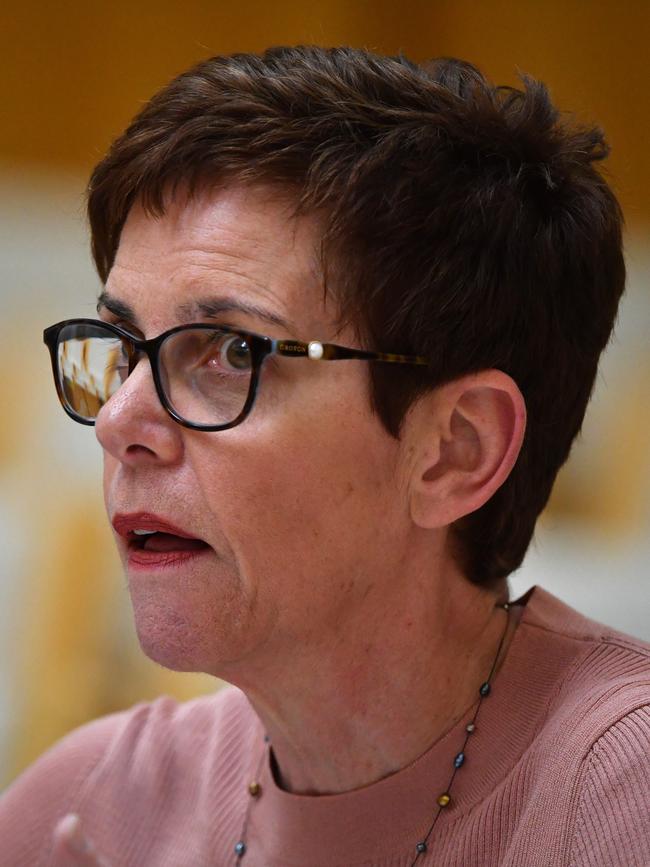Superannuation industry braces for merger gridlock
The prudential regulator’s move to label super funds under $30bn uncompetitive was a wake-up call for the industry.

The prudential regulator’s move to label super funds under $30bn uncompetitive was a wake-up call for the industry, but it could result in “traffic jams” as small funds line up to be swallowed by their bigger peers, according to industry experts.
APRA deputy chair Helen Rowell last week put a dollar figure on what it would take for funds to compete with the likes of behemoths AustralianSuper and Aware Super.
“The emerging industry view seems to be that any fund with less than around $30bn in assets under management is increasingly going to be uncompetitive against the so-called ‘mega-funds’,” she said.
“While there will inevitably be debate about the threshold level of assets needed, we agree with the sentiment.”
Despite Ms Rowell’s statement that this was the emerging view, it came as a shock to the industry, according to Deloitte superannuation partner Russell Mason.
“I think the $30bn took the industry, generally, by surprise. Previously, in discussions with APRA and funds, most funds probably thought it was getting up towards $12bn to $15bn,” he said. “Helen, in that speech, certainly raised the bar quite a bit.
“There’s been a tendency in the past, to some extent, for small to mid-size funds to merge. If APRA stands by Helen’s view, I think we’ll see small funds now look at large funds, if they decide to merge.”
Just a handful of the 170 APRA-regulated super funds sit above the $30bn threshold, raising the prospect of gridlock if small and mid-sized funds now rush to merge with the big end of town, KPMG head of asset and wealth management, Linda Elkins, warned.
“Mergers are difficult to do. Funds will only be able to go so fast because there’s only so much capacity to do mergers, especially if APRA’s view is that smaller funds should merge into bigger successful funds,” Ms Elkins said.
“Once a fund is doing one merger, other funds are going to have to line up.
“They probably can’t even do two mergers at the same time, so it will lead to a traffic jam.”
Mergers between funds typically take at least a year to complete.
Mr Mason sees the prospect of large funds staggering mergers but also cautioned that some small funds, at this stage, appear determined to stay as they are and not merge with any competitor.
“There are still a number of small and mid-sized funds, who believe they have a role and service their members well.
“At the end of the day I think we’ll be left with about a dozen mega funds and a dozen niche funds servicing particular industries or geographies.”

Wendy Tancred, the CEO of Mercy Super, the $1.4bn fund for the Mater Hospital in Queensland, thinks there is still a place for niche funds — for now at least.
“It’s all about what your value proposition is, and if that’s something that the member is interested in,” Ms Tancred said.
But Mercy Super’s days were numbered, she admitted. This is despite the fund not coming under any specific pressure from regulators to merge.
“Mercy Super won’t be around in 10 years time, that’s for sure,” she said.
“The cost of meeting continually increasing reporting obligations and complying with regulations is going to continue to increase, which means you need more staff and more systems. You’ve got to be very careful with how you do that and you’ve got to make sure it’s fit for purpose.”
There is also a place for “quasi mergers” like the partnership agreed between Maritime Super and Hostplus, according to Ms Elkins.
“When funds go to merge, there can be genuine barriers. It might have to do with the types of investments or the tax consequences, so that sort of innovation in the way funds may address their underperformance issues, I see that as positive.”








To join the conversation, please log in. Don't have an account? Register
Join the conversation, you are commenting as Logout